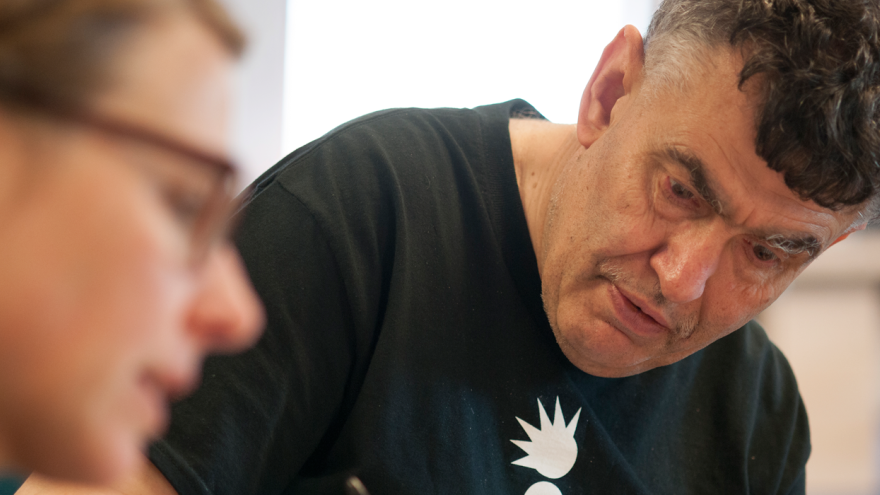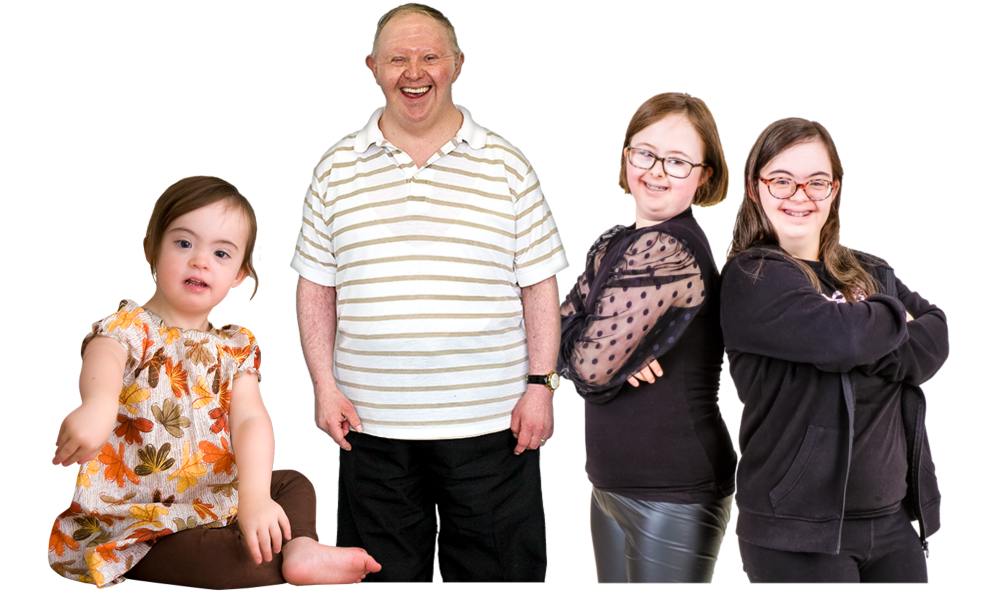Reporting about learning disability
This section has background information for journalists about what a
learning disability
 A learning disability is to do with the way someone's brain works. It makes it harder for someone to learn, understand or do things.
is and isn't.
A learning disability is to do with the way someone's brain works. It makes it harder for someone to learn, understand or do things.
is and isn't.
- A learning disability is caused by the way the brain develops before, during or shortly after birth. There are many different types and most develop before a baby is born or because of a serious illness in early childhood.
- A learning disability can be mild, moderate or severe and all are lifelong. Many people with a learning disability, however, live independent lives.
- A learning disability is lifelong, so it usually has a significant impact on a person's life. People with a learning disability find it harder than others to learn, understand and communicate. They can need support with everyday things - such as shopping and cooking, or travelling to new places.
- People with profound and multiple learning disabilities (PMLD) need full-time help with every part of their lives - including eating, drinking, washing, dressing and toileting.
- Like all of us, people with a learning disability are individuals who want different things in life and need different levels of support. A learning disability does not stop someone from learning and achieving a lot in life, if given the right support.
- A mental illness is not the same as a learning disability. Mental health problems include depression and bi-polar disorder. These are not the same as a learning disability. Though, just like everyone else, someone with a learning disability can have mental health problems.
- Learning disability is not a disease - it is not contagious and it doesn’t mean that someone is ill or unhealthy.
- Terms such "mental handicap" are old fashioned, and most people with a learning disability find this term offensive.
- A learning difficulty and learning disability are two different things. Learning difficulties can make it harder for people to do things, like reading or writing, Learning difficulties include terms like
dyslexia
 Dyslexia is a learning difficulty. People who have dyslexia can find it hard to read, write and spell.
and dyspraxia. These are ‘difficulties’ but are not ‘disabilities’. A learning disability is lifelong. Some people do prefer the term learning difficulty.
Dyslexia is a learning difficulty. People who have dyslexia can find it hard to read, write and spell.
and dyspraxia. These are ‘difficulties’ but are not ‘disabilities’. A learning disability is lifelong. Some people do prefer the term learning difficulty.
For more information read our Guide for journalists
For further advice please see contacts for media team.
Interviewing someone with a learning disability
Mencap passionately believes that people with a learning disability should be involved in all areas of our work, particularly when it comes to the media.
Many people struggle to understand exactly what a learning disability is and how it impacts on someone’s everyday life, which is why we're keen for journalists to speak directly to people with a learning disability to hear their experiences and opinions first-hand.
Here are some helpful hints to help you interview someone with a learning disability. The key point here is that you may need to make some changes to the way you usually do an interview.
- Explain any recording equipment you might have before you start the interview, so the person you are interviewing will not be distracted by it
- Make sure the interview environment is comfortable – not too noisy, accessible and free from distraction.
- If the person you are interviewing is with a support worker, make sure you talk and listen to the person with a learning disability first. However, you may need to ask the support worker for help if you don’t understand something.
- Avoid jargon, speak clearly and use everyday words. For example, say 'make sure' instead of 'ensure'.
- If you are not sure that the person you are interviewing has understood your question, try saying it in a different way or giving some examples of what you mean.
- Ask open questions, questions that do not have a simple yes or no answer.
- Allow more time for your interview than normal so that the person you are interviewing doesn't feel rushed into giving their answers.
- If you do not understand the person you are interviewing, don’t be embarrassed. Ask them to explain what they mean in a different way.
- If you need to use any form of written information, use a large font with double line spacing.






